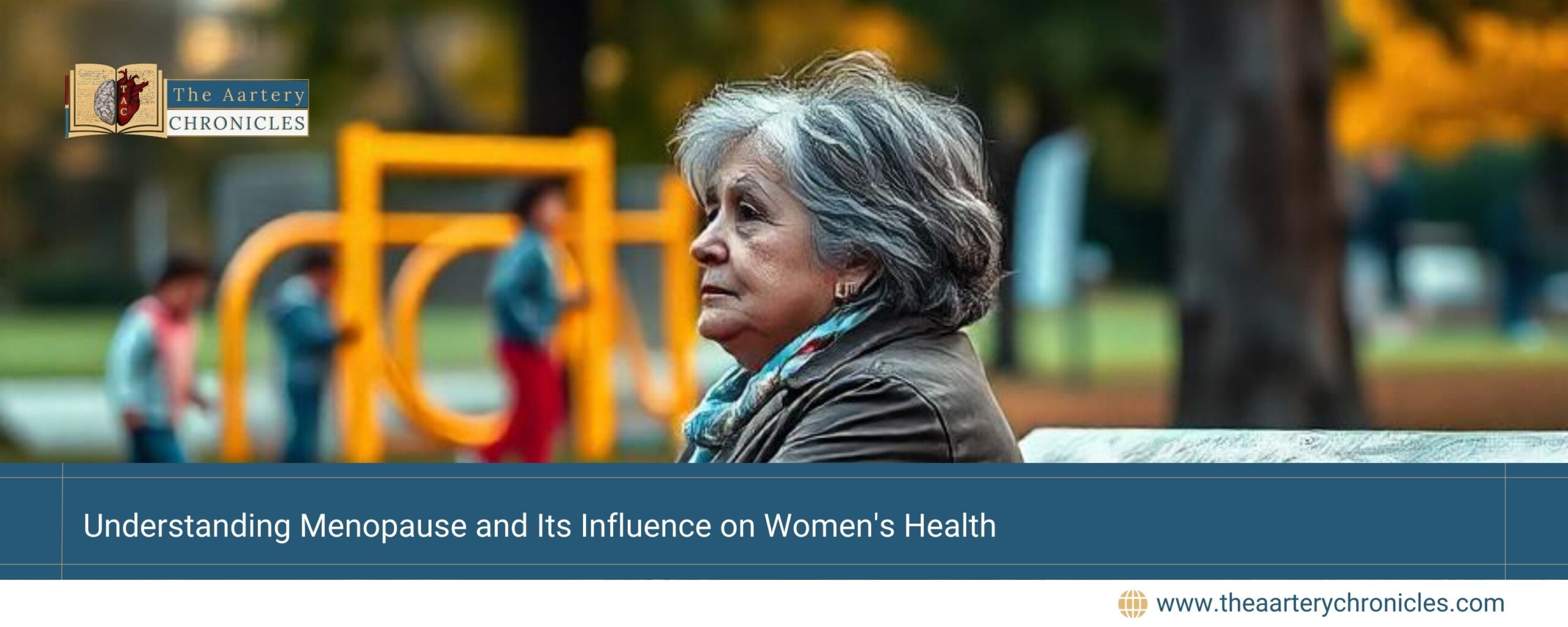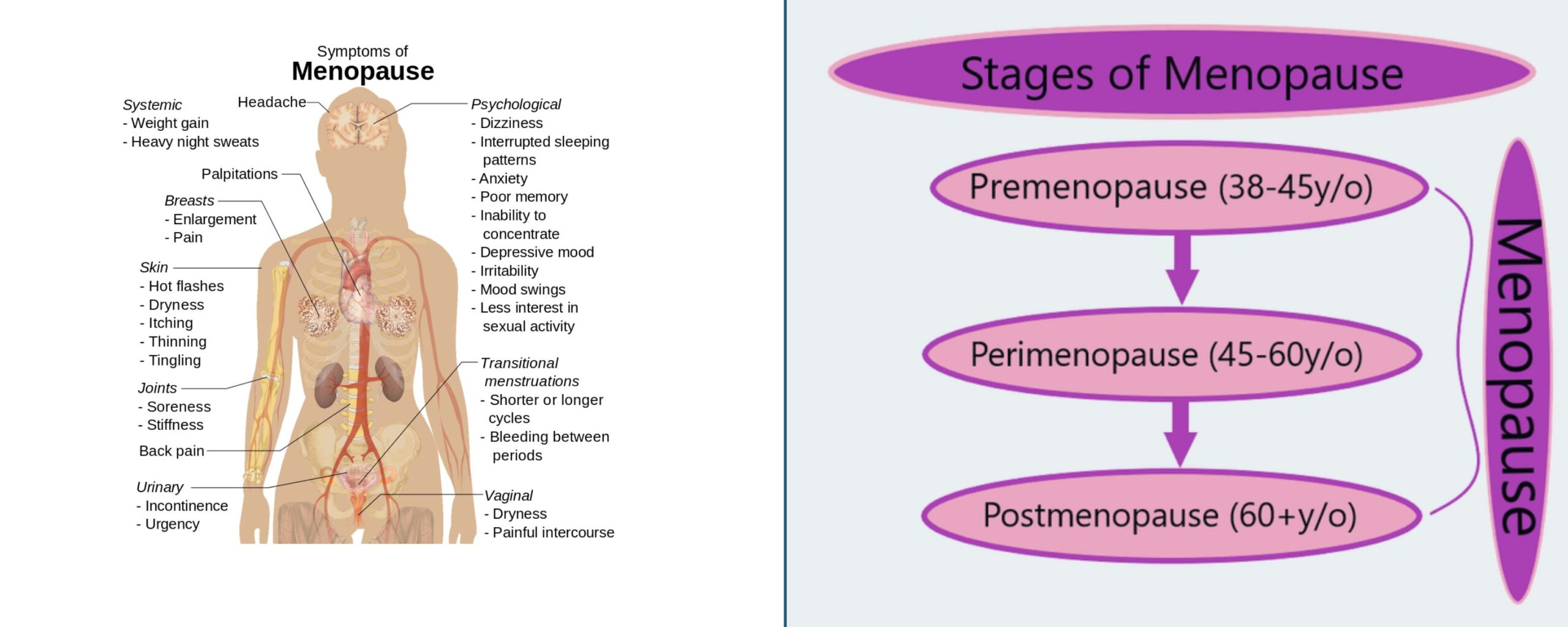

Understanding Menopause and Its Influence on Women's Health
Introduction
Hormonal health is a crucial aspect of overall well-being, yet discussions about menopause often remain in the shadows, despite their significant impact on middle-aged women. This condition arises due to natural hormonal changes as women age and brings a range of physical, emotional, and psychological challenges. This article delves into the key aspects of menopause, its symptoms, treatments, and why it is essential to raise awareness about this hormonal transition.
What is menopause?
Menopause is the natural and permanent end of menstruation (periods) in menstruating women and signifies the end of women’s fertility. It is caused by a gradual decline in the hormone estrogen, without being linked to any illness. The term derives from the Greek words pausis (pause) and men (month). Menopause is diagnosed when a woman has gone 12 consecutive months without a period. It typically occurs between the ages of 45 and 56, though it can happen earlier or later.
What are the stages of menopause?
The journey toward menopause is both preceded by perimenopause and followed by postmenopause. The stages leading to and following menopause can be broken down as follows:
1. Perimenopause
Perimenopause, also known as the menopausal transition, refers to the period during which a woman undergoes physiological changes leading up to her final menstrual period (FMP). This phase starts with the onset of irregular menstrual cycles and continues until menopause is officially reached or one year after FMP.
Perimenopause is often divided into two stages:
- Early Stage: The early stage is characterised by occasional skipped menstrual cycles and changes in the length of the menstrual cycle.
- Late Stage: The second stage is marked by more irregular periods, with stretches of no menstruation (amenorrhea) lasting over 60 days but less than 12 months, before the final menstrual period (FMP) occurs.
2. Menopause
This stage is reached when a woman has gone 12 continuous months without a period. Menopause is the official end of menstruation and fertility.
3. Postmenopause
This refers to the period after menopause during which women no longer have periods, but some may continue to experience menopause-related symptoms. Lower levels of estrogen can increase the risk of certain health conditions, such as osteoporosis (weak bones), heart disease and urinary tract infections (UTIs).
Symptoms of Menopause
The hormonal changes during perimenopause and menopause can lead to a range of symptoms. The intensity and duration of these symptoms vary from woman to woman, but common symptoms include:
- Hot Flashes: Hot flashes are sudden feelings of heat that spread over the body, and a sweating body often accompanies them.
- Night Sweats: Hot flashes during sleep are known as night sweats and can lead to disrupted sleep.
- Vaginal Dryness: Reduced estrogen levels during menopause can lead to thinning of the vaginal lining and result in dryness, discomfort, and pain during intercourse.
- Mood Swings: Hormonal fluctuations may contribute to mood changes, irritability, anxiety, or depression in women transitioning towards menopause.
- Sleep disturbances: Hormonal shifts, night sweats, and anxiety can contribute to insomnia or fragmented sleep.
- Irregular periods: During perimenopause, periods may become less predictable, heavier, or lighter than usual before they stop altogether.
- Weight Gain: Many women notice changes in body composition, including weight gain, particularly around the abdomen.
- Cognitive Changes: Some women experience memory lapses and difficulty concentrating, which is also known as “brain fog.”

Long Term Impact of Menopause on Women’s Health
While the immediate symptoms of menopause can be challenging, the hormonal changes also have long-term implications for a woman’s health. The decline in estrogen affects various systems in the body, and some of the key areas impacted include:
1. Cardiovascular Health
The decrease in estrogen is linked to an increased risk of cardiovascular diseases. Postmenopausal women are more prone to developing high blood pressure, elevated cholesterol, and heart disease. Maintaining a heart-healthy diet, exercising regularly, and managing stress are important preventive measures.
2. Bone Health
Estrogen is essential for maintaining bone density. As its levels drop during menopause, the risk of developing osteoporosis rises. Women are more susceptible to fractures, particularly in the spine, hips, and wrists. Regular weight-bearing exercises, calcium, vitamin D intake, and sometimes medications can help protect bone health.
3. Metabolic Changes
Metabolism often slows after menopause, and this can lead to potential weight gain. Fat distribution may also shift, with more fat accumulating around the abdomen and the risk of diabetes and metabolic syndrome being heightened.
4. Mental Health
The hormonal changes during menopausal period, combined with other life stressors, can impact a woman’s mental well-being. Depression, anxiety, and mood swings are common, and support from healthcare providers, counseling, and social networks is essential.
How to Manage Symptoms of Menopause?
Managing menopause symptoms involves a combination of lifestyle changes, medical treatments, and natural remedies to address both physical and emotional discomforts. Here are some effective ways to manage menopause symptoms:
Hormone Therapy (HT)
- Hormone therapy involves taking estrogen, sometimes combined with progesterone, to relieve symptoms like hot flashes, night sweats, and vaginal dryness.
- It’s most effective for individuals under 60 and within 10 years of entering menopause. Estrogen cannot be used on its own and must be combined with progestogen in women who still have a uterus.
- Progestogen is a broad term that refers to treatments that can include both natural progesterone and synthetic progestins.
- Estrogen also helps to prevent bone loss. However, HT is not suitable for all women, as it may increase the risk of certain health conditions, including breast cancer and certain heart conditions. It is important to discuss the benefits and risks with a healthcare provider.
Non-Hormonal Medications
For women who cannot or do not want to take hormones, non-hormonal medications such as:
- Antidepressants (low-dose SSRIs) to reduce hot flashes and mood swings.
- Gabapentin and Clonidine, which are often used for hot flashes and night sweat.
- Vaginal estrogen creams or rings can treat vaginal dryness without significantly affecting overall hormone levels.
Lifestyle Modifications
Making healthy lifestyle choices can ease many menopause symptoms:
- Exercise: Regular physical activity supports weight management, reduces stress, boosts mood and metabolism, strengthens bones, and enhances sleep quality.
- Sleep Hygiene: Establishing a regular sleep schedule, creating a relaxing bedtime routine, and keeping the bedroom cool can help combat insomnia and night sweats.
- Diet: A balanced diet rich in fruits, vegetables, whole grains, lean protein, and calcium boosts bone health. Phytoestrogens are naturally occurring plant compounds that can mimic estrogen’s effects in the body. Eating foods rich in phytoestrogens, such as soybeans, chickpeas, lentils, flaxseed, grains, and beans, can help support estrogen levels and combat hormone imbalances. Limited intake of caffeine, spicy foods, and alcohol helps reduce hot flashes and night sweats.
Stress Management
Stress can amplify menopause symptoms, especially mood swings and sleep disturbances. Managing stress by engaging in mindfulness practices like yoga, meditation, and deep breathing exercises helps relax the mind and body. Furthermore, cognitive-behavioral therapy (CBT) or speaking to a counselor can provide emotional support and strategies for coping with changes.
Vaginal Moisturizers and Lubricants
For women experiencing vaginal dryness, over-the-counter vaginal moisturizers and lubricants can improve comfort during intercourse without the use of hormones.
Social Support
Talking to friends, family, or joining a support group can help you feel less isolated during this transition. Sharing experiences with others going through menopause can offer comfort and practical tips.
Conclusion
Menopause is a natural part of ageing, and while it brings changes to a woman’s body and health, it can also be an opportunity for growth and self-care. By understanding the stages of menopause, managing symptoms effectively, and maintaining a healthy lifestyle, women can thrive during this transition and enjoy a vibrant, fulfilling life post-menopause.









